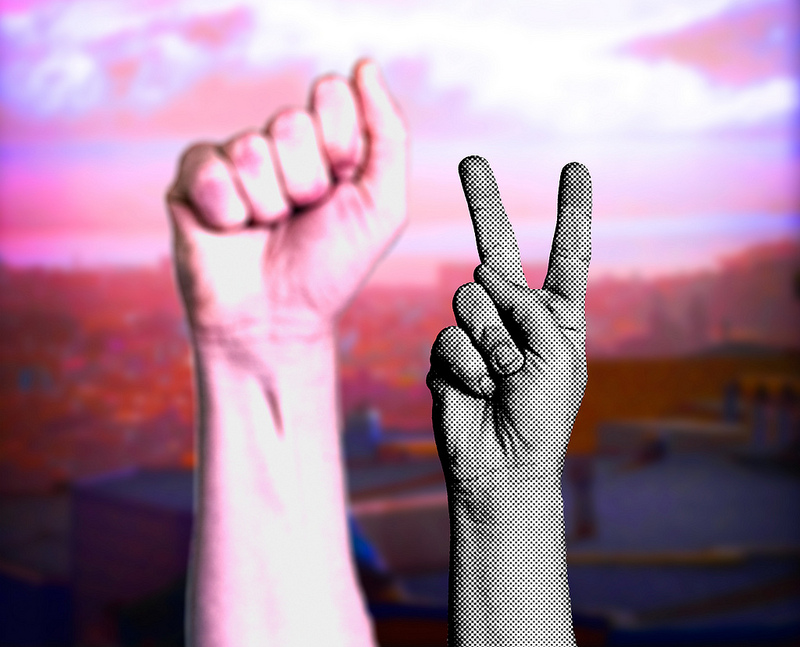On November 27 the Canadian Centre for Policy Alternatives gave its first Social Justice Award to Michael McBane, who has just stepped down as National Coordinator of the Canadian Health Coalition. What follows is a condensed version of my remarks in honour of his receiving the award.
It is good to find Michael among friends, companions, comrades.
That’s where the word social comes from — Socius — Latin for allies, companions, people we know, those we live with, and who matter to us.
To honour Mike, I want to reflect on social justice, not limit my remarks to how much he is appreciated.
Aristotle said that we if we wanted to have a good life, we needed to have a good society. That is what social justice is about: creating a good society. Margaret Thatcher famously said there was no such thing as society. She may have gone to Oxford, but she never studied Aristotle.
Social justice takes on several meanings. It can mean establishing human rights, giving each his or her due, meeting basic needs, protecting each other from risks we all face, and it can mean simply treating people fairly, justice as fairness in the language of John Rawls. Or, as Frank Scott of McGill and a former CCF Party President wrote, inspiring Pierre Trudeau, justice can be about creating a just society.
Social justice can also mean liberation, liberation from oppression. The women’s movement in Canada used to be called (and should still be thought of as) the women’s liberation movement.
Social justice for Mike McBane and his colleagues at the Social Affairs Commission was linked to liberation theology. It was about facing down oppression of people in their daily lives.
The roots of the 1983 Ethical Reflections on the Economic Crisis report by the Social Affairs Commission of the Canadian Catholic Bishops — co-chaired by Bishops Remi DeRoo of Victoria and Adolphe Proulx of Hull, and staffed by Tony Clarke, Bernard Dufresne, Pierette Warwick, and Mike McBane — were in Latin America.
Specially, the report drew on liberation theology. In Latin America, as the church had grown close to the ruling classes — the landowners and comprador capitalists — the Christian gospel message of love each another as you would wish to be loved yourself has gotten lost.
The message from the Canadian Bishops was that public policy should be driven by the “preferential option for the poor”; the alliance between capital and the state has produced poverty and unemployment, revealing a moral disorder in Canadian society that was unacceptable. The way ahead was to orientate all public policy towards the needs of the least favoured among us — the poor.
People who work for social justice know it to be a quest, a journey. It’s not a specific destination, it’s many places that need to visited. More than one goal is being sought. Social justice work is about producing social change, making life better for more people, getting better answers to questions such as “who gets what?”
The idea is to change the cultural codes used in daily conversations by Canadians, introduce new terms, new language, new symbols of what is good, and to name what is bad. Is it easy? Well, you know the answer.
Whether it was at Social Affairs, or as Coordinator of the Action Canada Network from 1990 to 1993, or after 1995 at the Canadian Health Coalition, Mike always understood that public policy was about the public, about reaching out, with words, images, and most importantly, about contact, being present.
Social change is an art — it will not go out of fashion or lack for opportunities. The corporate media deal with legitimate demands for change by ignoring them, laughing at them, attempting to refute them, and then when a demand for a decent wage, say, becomes too obvious too ignore, misdirecting attention away from social reality.
Canada has political and civic rights in a Charter of Rights and Freedoms. Courts are required to interpret the Constitution in the light of the Charter, and legislators are supposed to ensure that laws proposed pass the Charter test.
Canada can be proud of its equality rights in Section 15: women are equal to men. Those rights were won by the women’s movement, they fought for them.
Charles Taylor calls the right to be recognized a human right. An official languages minority, a visible minority, the differently abled — they have rights under the Charter protected in law.
But if recognition rights are in the Charter, Canada does not have economic, social, and cultural rights in its Charter, sadly.
After the Second World War, the UN adopted its Universal Declaration of Human Rights which included economic and social rights. The document was drafted by a Canadian, John Humphrey of New Brunswick, and of McGill, but this part of his work did not find its way into the Canadian Charter.
Aboriginal rights are guaranteed by treaties signed with the British Crown but Aboriginal peoples do not have self-government or even adequate funding for education, health, recreation, culture, or housing.
This is the price of not having economic, social and cultural rights enshrined in the Charter.
So we have a lot of work to do on social justice, the agenda is heavy, and the stakes are high. We know today that climate justice is of great significance. This was not well understood when the CCPA was founded in 1980, or when Mike McBane and I met three years later.
Thanks CCPA for giving us the opportunity to recognize Michael, and thanks to you, Michael. Your work has enriched our journey. This award ceremony will inspire us to continue to travel together, and let it be said loud and clear: the truth will win out, social justice will prevail.
Duncan Cameron is the president of rabble.ca and writes a weekly column on politics and current affairs.
Photo: David Goehring/flickr




